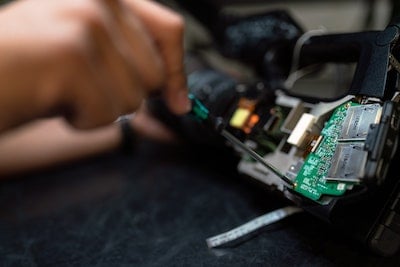 In today's world, technology plays a crucial role in the healthcare industry. One of the most important technologies in this field is WiFi, which allows healthcare providers to access and share important information quickly and efficiently. However, like any other technology, WiFi requires regular maintenance to ensure that it continues to function properly. In this blog post, we will discuss the importance of regular WiFi maintenance in healthcare settings and how it can help improve patient care.
In today's world, technology plays a crucial role in the healthcare industry. One of the most important technologies in this field is WiFi, which allows healthcare providers to access and share important information quickly and efficiently. However, like any other technology, WiFi requires regular maintenance to ensure that it continues to function properly. In this blog post, we will discuss the importance of regular WiFi maintenance in healthcare settings and how it can help improve patient care.
First of all, let's define what we mean by "regular WiFi maintenance." This term refers to a series of tasks that are performed on a regular basis to ensure that a WiFi network is functioning properly. These tasks might include checking the signal strength, identifying and fixing any connectivity issues, and updating the WiFi routers and other equipment as needed.
Regular WiFi maintenance is important in healthcare settings for a number of reasons. One of the most important is that it can help prevent network downtime. In a healthcare setting, network downtime can be a serious issue. If the WiFi network goes down, doctors and nurses may be unable to access important medical information, which can delay or even prevent them from providing the best possible care to their patients. By performing regular maintenance on the WiFi network, healthcare providers can help ensure that the network is always up and running, which can help prevent downtime and improve patient care.
Another reason why regular WiFi maintenance is important in healthcare settings is that it can help improve the security of the network. In a healthcare setting, the WiFi network is used to access and share sensitive medical information. This information must be kept secure to protect the privacy of patients and comply with regulations such as HIPAA. By performing regular maintenance on the WiFi network, healthcare providers can help ensure that the network is secure and that sensitive medical information is protected.
In addition to preventing network downtime and improving security, regular WiFi maintenance can also help improve the overall performance of the network. As more and more devices are connected to the network, the network may become congested, which can slow down the speed of the network and make it difficult for healthcare providers to access the information they need. By performing regular maintenance on the WiFi network, healthcare providers can help ensure that the network is running at its optimal performance, which can help improve the speed and reliability of the network.
Finally, regular WiFi maintenance can help healthcare providers save money in the long run. Although performing regular maintenance on the WiFi network may require an upfront investment of time and resources, it can help prevent costly downtime and ensure that the network is running smoothly. By performing regular WiFi maintenance, healthcare providers can help avoid the need for expensive repairs and replacements, which can save them money in the long run.
In conclusion, regular WiFi maintenance is an important part of ensuring that a healthcare facility's WiFi network is functioning properly. By performing regular maintenance on the network, healthcare providers can help prevent network downtime, improve the security of the network, improve the overall performance of the network, and save money in the long run. As such, it is important for healthcare providers to make sure that regular WiFi maintenance is a top priority.


